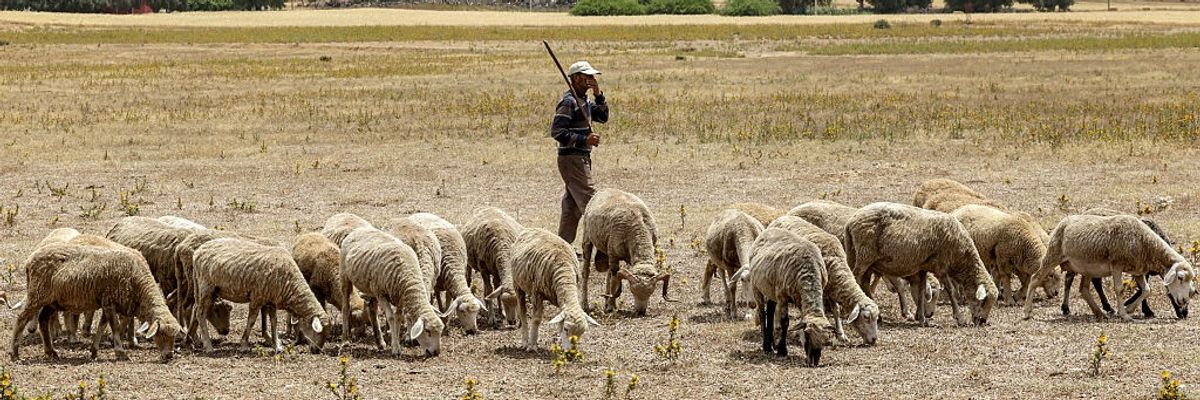Climate change is driving "some of the most widespread and damaging drought events in recorded history," according to a report published Wednesday on global drought hotspots.
Over the past two years, droughts have fueled increased food insecurity, dehydration, and disease that have heightened poverty and political instability in several regions of the world, according to research by the U.S. National Drought Mitigation Center (NDMC) and the UN Convention to Combat Desertification (UNCCD).
"This is not a dry spell," says Dr. Mark Svoboda, report co-author and NDMC Director. "This is a slow-moving global catastrophe, the worst I've ever seen. This report underscores the need for systematic monitoring of how drought affects lives, livelihoods, and the health of the ecosystems that we all depend on."
The report examined conditions in some of the globe's most drought-prone regions. They found that the economic disruption caused by droughts today is twice as high as in 2000.
In Eastern and Southern Africa, which have been blighted with dangerously low levels of rainfall, more than 90 million people face acute hunger.
Somalia has been hit particularly hard, with 4.4 million, more than a quarter of the population, facing "crisis level" food insecurity in early 2025. Zambia, meanwhile, faced one of the world's worst energy crises last year when the Zambezi River dried up, causing its hydroelectric dams to run critically low.
Other drought-plagued regions have seen wide ranges of ecological and economic disruptions.
In Spain, low levels of rainfall in 2023 devastated olive crops, causing olive oil prices to double. In the Amazon Basin, low water levels caused a mass death of fish and endangered dolphins. The Panama Canal became so depleted that trade vessels were forced to re-route, causing multi-week shipping delays. And in Morocco, Eid celebrations had to be cancelled due to a shortage of sheep.
Recent studies of drought have found that they are increasingly caused not by lack of rainfall, but by aggressive heat, which speeds up evaporation. The areas hit the hardest over the past two years were ones already suffering from the most severe temperature increases. It was also exacerbated by a particularly severe El Niño weather cycle in 2023-24.
"This was a perfect storm," says report co-author Dr. Kelly Helm Smith, NDMC Assistant Director and drought impacts researcher. "El Niño added fuel to the fire of climate change, compounding the effects for many vulnerable societies and ecosystems past their limits."
Though the effects of droughts are often felt most acutely in areas already suffering from poverty and instability, the researchers predict that as they get worse, the effects will be felt worldwide.
In 2024, then the hottest year on record, 48 of the 50 U.S. states faced drought conditions, the highest proportion ever seen. Drought in the U.S. has coincided with a dramatic increase in wildfire frequency and severity over the past 50 years.
"Ripple effects can turn regional droughts into global economic shocks," Smith said. "No country is immune when critical water-dependent systems start to collapse."
The researchers advocated for investments in global drought prevention, but also for broader measures to address the existing inequalities that make droughts more severe.
"Drought has a disproportionate effect on those with few resources," Smith said. "We can act now to reduce the effects of future droughts by working to ensure that everyone has access to food, water, education, health care and economic opportunity."
The researchers also emphasized the urgency of coordinated action to confront the climate crisis.
"The struggles...to secure water, food, and energy under persistent drought offer a preview of water futures under unchecked global warming," said Svoboda. "No country, regardless of wealth or capacity, can afford to be complacent."




